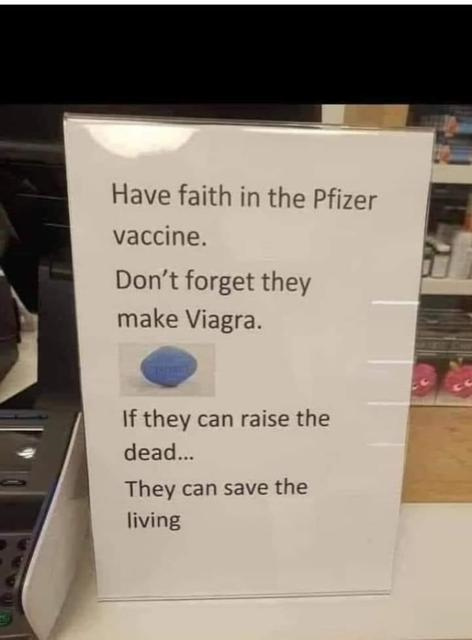that triggered a memory of a news item from last year -
https://www.kansascity.com/news/coronavirus/article252331723.html
But we also know according to Israel’s findings that the efficacy with the mRNA vaccine wanes over time. The 3rd week of July, they reported it dipped as low as 39%. That’s down from 64% during the first week of July. Israel starting vaccinating the third week of December 2020. That’s 7 months. What will the efficacy rating look like in September? October?
I like that the UK did the mixing of vaccine doses. They said that according to their study, a first jab with AZN’s vaccine followed with a Pfizer offered the most robust immune response.
I think there will be other solutions and tools coming down the pike.
I found this pretty interesting:
If you don’t trust the link from Max-Planck Institute, here’s an excerpt:
Scientists at the Max Planck Institute for Biophysical Chemistry in Göttingen (Germany) and the University Medical Center Göttingen have now developed mini-antibodies (also known as VHH antibodies or nanobodies) that unite all the properties required for a potent drug against Covid-19. “For the first time, they combine extreme stability and outstanding efficacy against the virus and its Alpha, Beta, Gamma, and Delta mutants,” emphasizes Dirk Görlich, director at the Max Planck Institute for Biophysical Chemistry.
At first glance, the new nanobodies hardly differ from anti-Sars-CoV-2 nanobodies developed by other labs. They are all directed against a crucial part of the coronavirus spikes, the receptor-binding domain that the virus deploys for invading host cells. The nanobodies block this binding domain and thereby prevent the virus from infecting cells.
“Our nanobodies can withstand temperatures of up to 95 °C without losing their function or forming aggregates,” explains Matthias Dobbelstein, professor and director of the University Medical Center Göttingen’s Institute of Molecular Oncology. “For one thing, this tells us that they might remain active in the body long enough to be effective. For another, heat-resistant nanobodies are easier to produce, process, and store.”
The simplest mini-antibodies developed by the Göttingen team already bind up to 1000 times more strongly to the spike protein than previously reported nanobodies. They also bind very well to the mutated receptor-binding domains of the Alpha, Beta, Gamma, and Delta strains. “Our single nanobodies are potentially suitable for inhalation and thus for direct virus neutralization in the respiratory tract,” Dobbelstein says. “In addition, because they are very small, they could readily penetrate tissues and prevent the virus from spreading further at the site of infection.”
That’s why we have murder hornets. Duh.
Big tech is not helpful, but the real problem is that there is a market for anti-vax hype. This reflects a general anti-science outlook among what we like to call “the deplorables.” (What is the correlation between anti-vax beliefs, creationism, climate science denial, flat-earth beliefs, ghosts and UFOs, and so forth?) It is a hard problem for a democracy. Places like China just round up everyone and jab them with vaccine. This is not something that would happen in any democratic country. My opinion is that vaccine passports (these used to be called vaccination records before the current crop of nutcases came on the scene) need to be rolled out more aggressively, e.g. you can’t board a plane or a train, enter any public event, or check into a hotel or a restaurant without one. Note that the major reason that vaccinated people have any susceptibility is the large numbers of unvaccinated people, who continue to manufacture resistant and/or ultra-transmissible strains.


